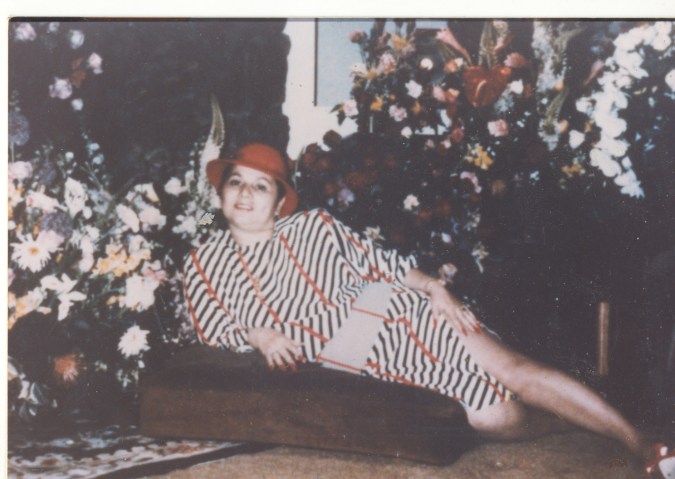With a title like Cocaine Cowboys, director Billy Corben made no attempt to hide what kind of documentary he was making. Billed as a history lesson on how Miami became the epicenter for the drug trade in the 1970s and 1980s, the explosive 2006 doc hinged instead on stories told by colorful characters vaguely punctuated by alarmist archival news footage. Speaking to the Miami New Times when the film was first released, Corben’s producer Alfred Spellman noted that during their lifetimes (Corben was 27 when the movie first premiered) Miami had undergone “a monumental change that was never documented, except in the movies Scarface and the TV show Miami Vice.” Cocaine Cowboys, the young filmmakers hoped, would document that story. Only, instead of offering a rigorous nonfiction take on the story those two famous Miami-set projects exploited and presented, what Cocaine Cowboys did was merely offer that same sensationalized sensibility wrapped within the form of a documentary.
Corben’s film ushered in an era of Narco dramas in the U.S. where drug traffickers were remade in the image of Western outlaws, as captivating as they were bloodthirsty. You can draw a straight line from the gritty glamour of Cocaine Cowboys and its haphazard historical context to the likes of Narcos, Cocaine Godmother, Snowfall and American Made. This is a doc that lets testimonials and old news reports do the heavy lifting. Thus, Medellin is “a town completely dedicated to narcotics” that is, as the documentary puts it, The Beverly Hillbillies but with cocaine: just a bunch of poor bums who struck gold. It’s but one instance where the fact that there’s only arguably one Colombian voice in the entire documentary (Cali-born hit man Jorge “Rivi” Ayala) really shows how skewed an image of the country and the drug trade was being packaged.
Writing in The New York Times, Jeannette Catsoulis scathingly opened her review of the film with an all too accurate assessment of the then-two hour cut of the film: “Overlong, overexcited and over the top, Billy Corben’s bottom-feeding documentary, Cocaine Cowboys, would be more enjoyable if it weren’t so impressed with its subject matter and so devoted to pictures of dead bodies.” For its 2014 rereleased (subtitled Reloaded) Corben added an extra half-hour worth of footage, bolstered by the fact that in its cable run on Showtime, the film had become an unlikely cult hit. Viewers were clearly clamoring for more of the schlock he’d first offered in spades in interviews with the likes of Jon Roberts and Mickey Munday, two former drug traffickers who relished regaling Corben with the exploits that had first gotten them in jail.

It’s no surprise the doc was optioned for television to Michael Bay and Jerry Bruckheimer Television: the doc is an IRL Scarface with little of the narrative elegance of that Brian De Palma flick. The fascination with drug lords as modern-day antiheroes — as “cocaine cowboys” — is there in the way Corben tells his Miami story. Corben’s original documentary, as well as its follow-up, Cocaine Cowboys 2: Hustlin’ with the Godmother, owes less to the grammar and rigor of documentaries than to late 1990 MTV music videos and VH1 Behind the Music specials. It’s not just the rap songs that open up that Griselda Blanco-focused sequel but the frantic DIY faux-glitz style it privileges, which glorifies its subjects even as they confess to the tawdry crimes that landed them in hot water in the first place.

“She was a real-life cocaine queen,” Charles Cosby tells the camera during Cocaine Cowboys 2. “Which, at that time, I didn’t even know was a thing. I was just in awe of her and what she was able to do on the streets of America. I basically idolized the lady.” By giving Cosby the narrative voice in his doc (as he had Roberts and Munday in the original doc), Corben lets that kind of language seep into the very structure of the film where idolatry takes the place of inquiry.
Moreover, Cocaine Cowboys takes too much pleasure in sleazy stories (“If you were a prostitute, you were in prostitute heaven at Mutiny,” one interlocutor says when describing the booming Miami scene in the 1980s) and all but ignores the serious subject matter it’s teasing out. It offered an early template for how to tell stories about narcos that fed into easy stereotypes, giving audiences thrilling and action-packed history lessons with little regard for the systemic issues at play. This is the sensibility that runs through shows like Queen of the South and Narcos, which first and foremost hope to entertain audiences and boil complicated narratives about the war on drugs down to charismatic figures who blow up their enemies with gleeful pride.
Cocaine Cowboys: Reloaded and Cocaine Cowboys 2: Hustlin’ with the Godmother are both available to stream for free on Tubi.





